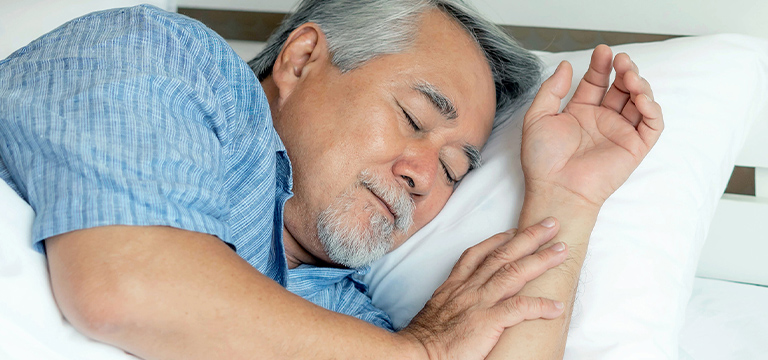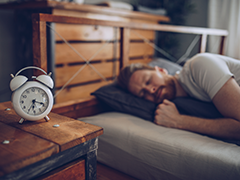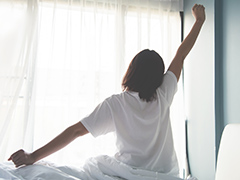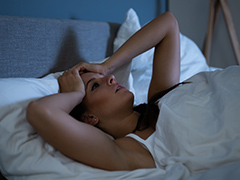Maximize Your Sleep to Feel Your Best

You’ve heard it before. Getting proper sleep can improve your health in many ways. Easier said than done. So, how do you maximize your sleep? Science shows us that sleep hygiene may have a lot to do with it.
Sleep hygiene are the healthy habits, behaviors and environmental factors that affect your sleep. Like dental hygiene, it’s how you promote healthy sleep. This doesn't just mean the number of hours but the quality of rest you’re getting. There are things you can do to make sure you are getting the most out of your sleep every night.
One of the most important aspects of sleep hygiene is your environment. Here are some key things to look for:
1. Make sure your room is the right temperature. For most people, the best temperature for sleeping is between 60 to 67 degrees Fahrenheit. Because your body’s temperature decreases during sleep, a cool room can help you stay asleep throughout the night.
2. Keep your room dark. The blue light from electronics, like TVs and phones, can keep you awake for longer because it blocks a hormone called melatonin that makes you sleepy. For best practices, shut off your devices before bed.
3. Remove noise distractions. If there are outside sources you can’t control, like neighbors or a barking dog, use earplugs.
4. Invest in a mattress and pillow that offer back and neck support. What’s comfortable for each person is subjective, but experts say the surface you sleep on directly impacts your quality of rest.
Now that you’ve got your sleep setup in order, it’s time to tackle some things you can do to optimize your sleep. That means daily tasks, not just before bedtime.
One of the best ways to improve sleep is by exercising regularly. An exercise routine and sleep routine go hand-in-hand. Just 30 minutes of exercise per day can make a positive change. Outdoor exercise can be especially beneficial as natural light exposure also helps to regulate sleep patterns.
Outside stressors like caffeine can also impact how you sleep. Don’t worry, this doesn’t mean you have to cut out daily coffee or tea. To avoid caffeine affecting your sleep, you might want to avoid your late afternoon cup of coffee. While caffeine is absorbed relatively quickly, it can stay in your system anywhere between two and ten hours. For best practices, avoid caffeine a minimum of six hours before bed.
Aside from physical stressors, mental stressors can play a huge role in sleep health too. If you are struggling with mental health problems that are impacting your rest, remember that all FEP members have access to telehealth services. With Teladoc®, you can speak with licensed mental health care providers from the comfort of your home.
All in all, sleep health is more than what happens when you lie down at night. There are things you can do every day to ensure you get proper rest.
Sources:
https://www.healthline.com/health/sleep-hygiene#what-is-it
https://www.jeanhailes.org.au/news/eyes-wide-shut-how-caffeine-can-affect-your-sleep


